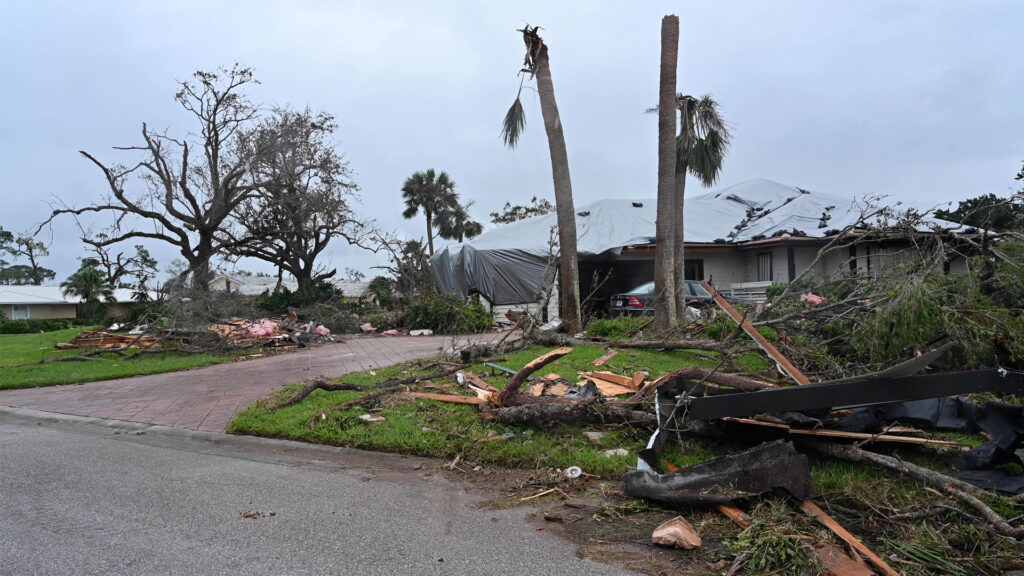By the Palm Beach Post Editorial Board
When four tornadoes spawned by Hurricane Milton tore through Palm Beach County last October, the Federal Emergency Management Agency arrived shortly thereafter to render assistance. From Wellington and The Acreage to Palm Beach Gardens and Jupiter Farms, the agency swept in behind local first responders to support disaster recovery efforts and channel federal relief dollars to those in need.
The assistance was just the latest instance in Palm Beach County and Florida – and nationwide – in which the agency created by President Jimmy Carter in 1979 has come to the rescue of tens of thousands of homeowners devastated by natural disasters.
So, one can only imagine the ex-president, whose recent funeral our latest president attended, rolling in his grave at President Donald Trump’s suggestion that FEMA be disbanded.
Yet there was Trump a few days later, telling a gaggle of reporters that, just as Carter created the agency by executive order, he would now “begin the process of fundamentally reforming and overhauling FEMA,” or, he added casually, “maybe getting rid of it.”

Like so many other Trump statements designed for drama, it was hard to take this one seriously, especially when red states like Florida, Louisiana and Texas rely so heavily upon the agency. Sure enough, his press secretary soon tried to walk it back, saying Trump planned to direct an advisory council to root out corruption and incompetence – but would not dismantle FEMA.
Like any federal agency, FEMA would benefit from a study to determine how it might more efficiently accomplish its crucial mission, how it could help more people faster and less expensively, and more reliably help nail those who see the speed at which it reacts and distributes federal largesse in emergencies as an opportunity for theft.
So, offering to improve the agency was the right idea. Threatening to abolish it was a foolish one, especially in the context of his trips to California and North Carolina, whose residents are reeling from forest fires and hurricane floods and desperate for help. Even as a negotiating gambit for political leverage of one sort or another, it was beyond insensitive.
Not that sensitivity is the trait for which his supporters elected him, we fully concede. But frankly this is just more dangerous chatter from the guy who told us he’d replace Obamacare with a much better health plan (how many years ago was that?) but still hasn’t come up with one; withdraw from the World Health Organization without a better plan to address global health crises; withdraw from the Paris Agreement on climate change without any plan at all.
The most efficient way to reduce FEMA expenditures, if that’s Trump’s goal, would be to attack the cause rather than the symptoms. FEMA’s overseeing distribution of food and water and assisting business and homeowners in damage recovery are important roles for a federal agency. Improving its performance wouldn’t hurt. But taking aggressive action to alleviate climate change would reduce the number of disasters to which FEMA and state and municipal governments must respond in the first place.
Instead, the president is rushing to open the entire Florida coastline to oil drilling, threatening to remove electric vehicle purchase incentives and backing out of an international climate pact in which 200 nations have joined forces.
Not to make it personal but someone who lives on a barrier island, in a house three feet above sea level, should be concerned. Instead, he’s blithely tossing off threats about killing FEMA with no thought to the added threat that would pose to all of us. Our mantra might as well be, “What climate change?”
We don’t need paper towels, blue tarps or plywood, Mr. Trump. We need serious solutions to man-made meteorological changes that threaten our way of life.
This opinion piece was originally published by the Palm Beach Post, which is a media partner of The Invading Sea. Banner photo: FEMA Disaster Survivor Assistance teams, along with FEMA Corps members, canvass Lake County to help residents after Hurricane Milton. (Chief Petty Officer Daniel M. Young/U.S. Naval Forces Europe-Africa, via Defense Visual Information Distribution Service).
Sign up for The Invading Sea newsletter by visiting here. To support The Invading Sea, click here to make a donation. If you are interested in submitting an opinion piece to The Invading Sea, email Editor Nathan Crabbe at nc*****@*au.edu.



